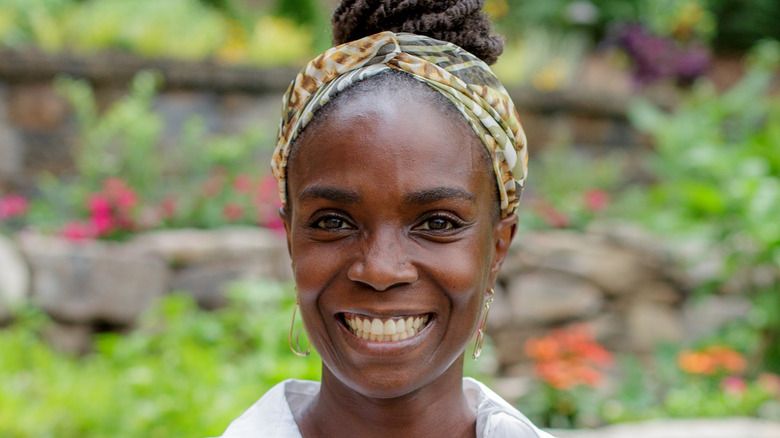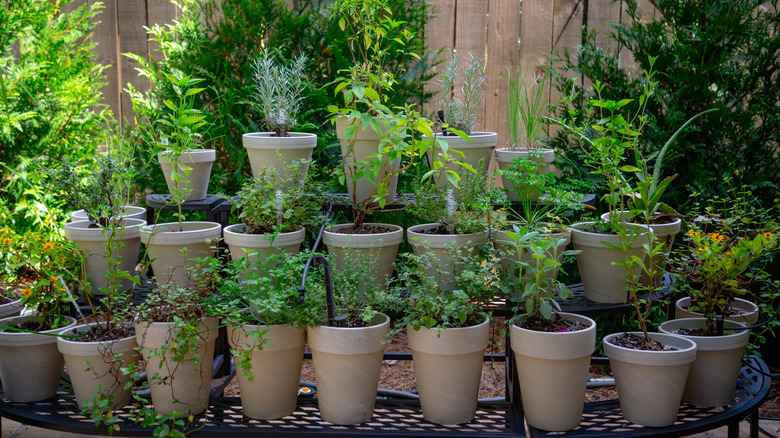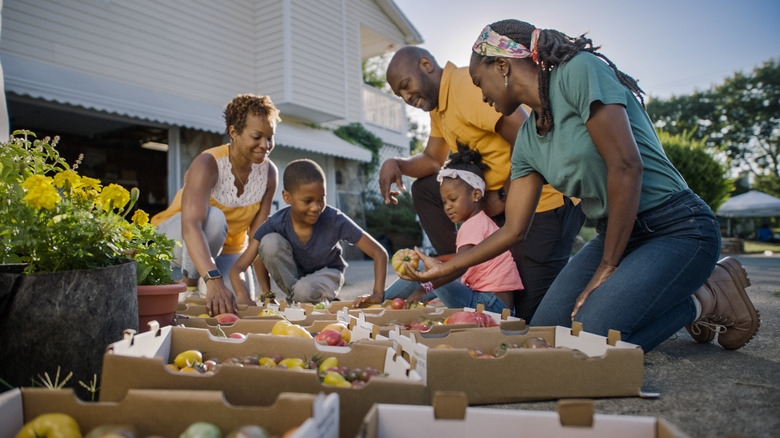Homegrown's Jamila Norman Explains How To Get Amazing Yields Out Of Small Gardens - Exclusive
There is plenty to love about city-life, but ample garden space rarely makes the list. Jamila Norman, the budding star of HGTV's "Homegrown," understands these limitations.
Even without the 1.2-acre plot in Atlanta that she dubbed Patchwork City Farms, the enigmatic mother and farmer would not be lacking tomatoes, onions, or leafy greens. In an exclusive interview with House Digest, Norman gave the lowdown on her show along with some sage tips for gardening on small plots.
"First and foremost — really important — make sure you got lots of sun because lots of plants need lots of sun," Norman said. While this may sound obvious to some, in practice, it's likely not as easy as they'd think, especially in an urban environment. Many quick-growing veggies require up to eight hours of direct sun a day, so scouting the yard or patio for the most consistently sun-kissed location is imperative, but that's not all.
"Make sure the soil is the best soil that you can get and it's fertilized well," Norman said. "You got to make sure that you have really good soil and good nutrition in that soil so it can support all of those plants growing to their fullest potential."
Do not skimp out on the soil
In some ways, a garden's soil is just as important as the seeds. Cutting corners here is a surefire way to minimize a small garden's massive potential.
"Do not skimp out on the soil. [Buy] really good compost that you're going to add to the soil that you have already if you're growing in the ground," Norman said, "or if you are building some raised beds, make sure to seek out good-quality compost to fill those beds with. Even if you're growing in pots, buy good quality, and that would be soil that has a lot of compost already in it. It's formulated for growing vegetables."
For those starting to think that finding the right soil is more complicated than imaginable, don't worry. While urban gardening is full of intricacies and trial-and-error experiments, picking great soil isn't rocket science.
"Usually, on the bag, they'll have [a] picture — they'll either have flowers, or they'll have vegetables. You want to make sure you're picking the stuff that is for growing vegetables," Norman said. "It would already have, hopefully, some organic fertilizers and some other beneficial bacteria and mushroom stuff in it. All of that is going to give you a great foundation."
Companion planting to maximize yield
When planning a small garden, picking the wrong plants can also spell disaster. Thankfully, humans have been growing vegetables for over 10,000 years and have picked up some knowledge along the way.
"There are things that you can do with companion planting, where you are growing more than one crop within the same space, and it helps to maximize the variety of crops that you're getting," Norman said. "Also, you are planting crops that are not competing for the same nutrients."
Companion plants, such as the Iroquois' "Three Sisters," have helped humans achieve a bountiful harvest since long before the days of mechanized agriculture and boutique plant food. This method also gives gardeners plenty of options in terms of the plant variety.
"If people do a Google search of companion plants, you'll see tomatoes and basil or lettuces and carrots that you can plant close together. You can plant onions and garlic with a lot of your leafy greens, like kale and collards, and they don't take up the same amount of space, and they work well together," Norman said. "Companion planting is a really good tool for maximizing space, and there are a host of benefits."
Season 3 of "Homegrown" is available now on Magnolia Network with new episodes every Saturday at 1 p.m. EST; new episodes to stream each week on HBO Max and discovery+ every Saturday.


